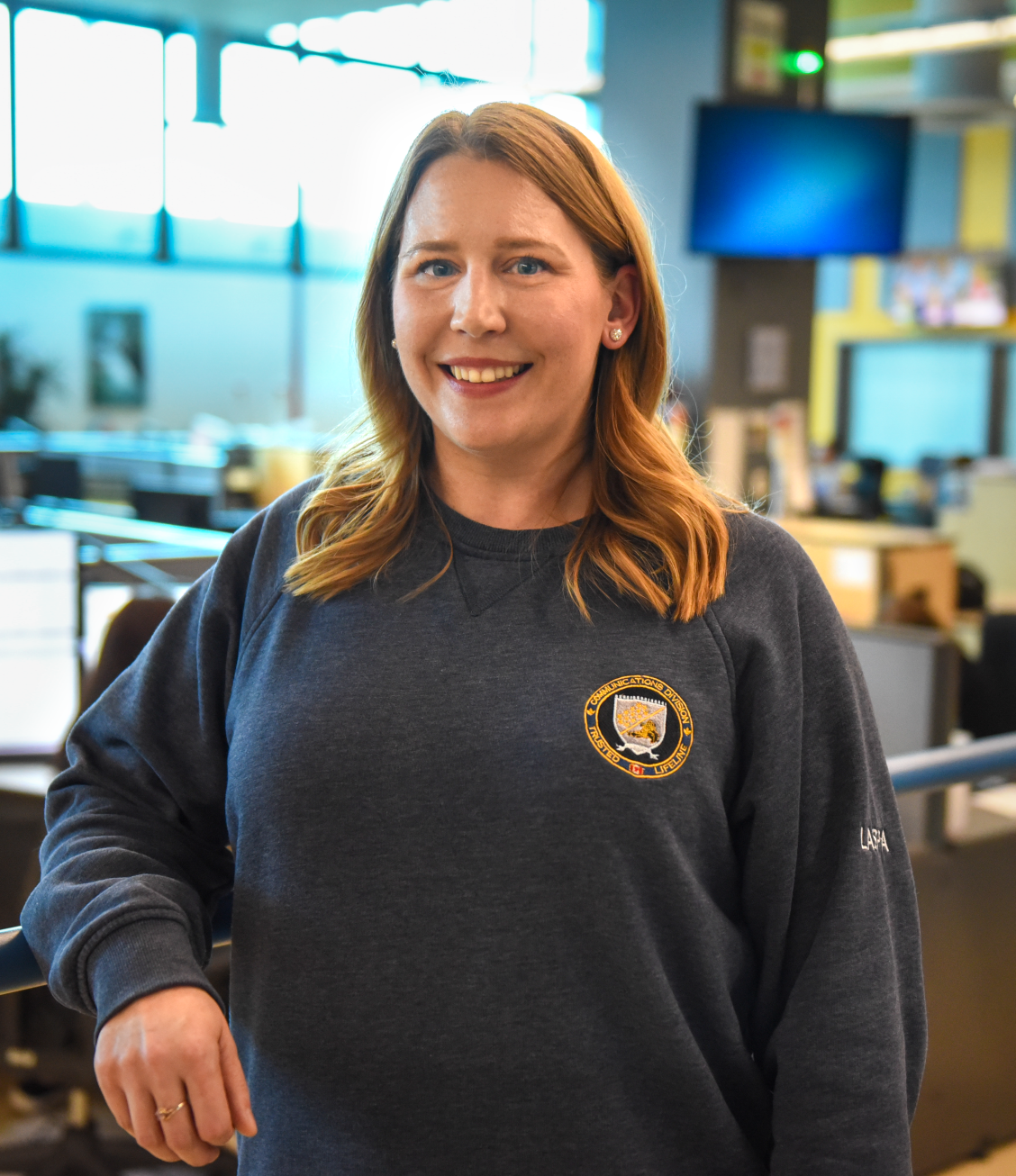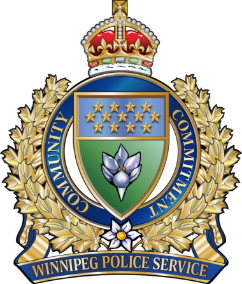The Winnipeg Police Service (WPS) Communications Centre has been the primary Public-Safety Answering Point (PSAP) for Winnipeg since 1959. Our Call Takers handle approximately 1,350 calls per day from the public, which includes both 9-1-1 emergency and non-emergency calls.
Call Takers have excellent active listening, conflict resolution, and multi-tasking skills. They possess critical thinking abilities and are able to react calmly and effectively to emergency situations. Call Takers are the critical link between members of the community and the public safety services they require, including other emergency response agencies such as the Winnipeg Fire Paramedic Service.
The Emergency Communications Call Taker role is not for everyone. To assist you in determining if this position may be right for you, please complete this self-assessment questionnaire (PDF, 381KB).
Although we do not accept unsolicited applications, if interested in a future career as an Emergency Communications Call Taker, please download this Call Taker information package (PDF, 1.9MB). Any openings for this position will be posted on the current vacancies page.
Call: 204-986-6204
- Minimum 18 years of age
- Canadian Citizen or Permanent Resident (Landed Immigrant)
- No involvement in any criminal activity within the last two years (including illegal drugs)
- No criminal record for which a Pardon has not been granted
- Grade 12 diploma, GED Certificate or equivalent*
- Diploma in a French Immersion Program or other language program an asset
- Possess basic computer skills, ability to learn and adapt to new technology and/or programs with ease
- Demonstrated basic-level proficiency in Microsoft Word, Excel and Outlook
- Demonstrated ability to keyboard accurately, minimum 40 wpm
- Demonstrated knowledge of City of Winnipeg streets, roads, major routes and common place locations
- Be proficient in English, both oral and written, and French if position is bilingual; minimum intermediate-level proficiency
- Ability to communicate in a second language is an asset
- Ability to work independently with minimum supervision
- Possess excellent organizational skills, ability to multi-task, and prioritize
- Ability to maintain composure and function under the stress of emergency situations
- Possess excellent critical thinking abilities to methodically, strategically, and collaboratively assess situations and make sound decisions
- Possess cultural awareness and sensitivity
- Excellent interpersonal skills, ability to be assertive and respectful especially when dealing with the public, ability to work effectively in a formal and informal team environment
- Ability to maintain confidentiality and protect sensitive information
- Ability to engage in self-evaluation with regard to performance and professional growth
- Ability to accept constructive feedback regarding work performance
- The ability to establish and maintain a positive, respectful, safe and healthy work environment that supports the physical, psychological and social working relationships with staff at all levels in a team environment
Applicants who have been educated outside of Canada must have education which is comparable to the minimum qualification in Canada. Applicants submitting foreign credentials require an official academic assessment report issued by a recognized Canadian assessment service at application. If you are not submitting proof of Grade 12 completed within Canada, we require you to submit proof of a full-time, two year post-secondary program completed in Canada.
Test 1
SkillCheckTM will assess your keyboarding speed and accuracy.
The evaluation consists of one, three-minute warm-ups (optional) followed by one, five-minute evaluations. The computer tabulates the gross and net result of each evaluation. For every error, two points are taken off the gross speed. The highest net score obtained as a result of the evaluation will be used to determine the applicant's typing skill level.
Candidates must achieve a minimum score of 40 words per minute to successfully pass the test
The evaluation is conducted remotely on your computer.
Test 2
The computerized CritiCall pre-employment test is used to measure underlying skills and abilities a person needs to possess prior to any training they might receive if they are hired as a 9-1-1 Call Taker.
CritiCall is what is known as a work sample test, in that it simulates a generic dispatch environment, but does so in a way that does not require job specific knowledge.
In other words, CritiCall puts you into situations that require the same knowledge, skills, and abilities necessary for success in the 9-1-1 emergency environment.
Successful completion of the test requires mastery of skills and abilities such as:
- Multitasking
- Prioritization
- Keyboarding
- Map reading
- Memory recall
- Comprehension
- Probability
- Data entry
- Decision-making
The CritiCall testing process will take between two to three hours to complete and is administered on site by the Winnipeg Police Service - Recruiting Unit.
Test 3
If the position is bilingual, applicants will be required to undergo a French Language Assessment.
| Call Taker | Hourly | Bi-Weekly | Annual |
|---|---|---|---|
| Step 1 | $30.67 | $2,453.87 | $63,800.76 |
| Step 2 | $32.95 | $2,636,43 | $68,547.32 |
| Step 3 | $34.18 | $2,734.24 | $71,090.38 |
| Step 4 | $36.13 | $2,890.72 | $75,158.87 |
| Step 5 | $38.09 | $3,047.25 | $79,228.41 |
| Step 6 | $39.64 | $3,171.15 | $82,449,03 |
| Step 7 | $41.08 | $3,286.31 | $85,443.97 |
*Above salary schedule is effective December 31, 2024.
Note: Call Takers are on probation for 12 months.
Approximately 5 weeks, Monday - Friday, 08:30 - 16:30 - classroom setting.
Following the classroom portion, members will be assigned a coaching mentor and placed on a shift rotation, receiving approximately 350 - 450 hours of coaching.
This one-on-one training is provided to ensure supervised development for the safety of both the trainee and the public. At the end of this coaching period, trainees will receive an evaluation assessing their ability to work independently.
Vision standards
Uncorrected vision
- 20/40 Vision with both eyes open
Or
Corrected vision
- At least 20/30 with both eyes open with corrective lenses
Hearing standards
- Normal unaided hearing thresholds no greater than 30 decibels in each ear at 500 Hz, 1000 Hz and 2000 Hz and no significant loss in higher frequency.
If you have any questions, please contact the City of Winnipeg Occupational Health Branch at 204-986-5218.
After 12 years as an Educational Assistant in an autism and adaptive skills program, Sarah felt the need for a change and sought a role that would challenge her while allowing her to help people. Transitioning into emergency communications, she brought with her extensive training in de-escalation and crisis intervention, which she applies when answering calls as an Emergency Communications Call Taker and Dispatcher.
“I really like being able to help the community and support people on some of the worst days in their lives,” Sarah shared. “Although it can be difficult, it’s very rewarding.”
Confident in her ability to stay calm under pressure, Sarah emphasizes the importance of talking through tough calls with her supportive coworkers and supervisors. She believes great 911 operators must stay level-headed, think quickly, and effectively triage calls with limited information.

Recently promoted to Dispatcher, Sarah is excited about new opportunities, including coaching and job shadowing. While adjusting to her new role, she reflects on the unique nature of the job: “It’s such a specific role that it’s hard to compare to anything else. I’d say just give it a shot.”
Sarah’s journey exemplifies the rewarding challenges of emergency communications and the difference one can make by staying calm, compassionate, and focused under pressure.
Jenn's career journey highlights her passion for assisting people in difficult times. Before joining the Winnipeg Police Service Emergency Communications team, Jenn spent much of her professional life supporting children and families navigating the child welfare system. This experience taught her the value of empathy and objectivity, traits she has carried into her role as a 911 Communications Dispatcher.
“I enjoy change and thrive in fast-paced environments, so for me, this just made sense,” Jenn shared. “I’m very glad I took the leap.”
Now an Emergency Communications Dispatcher, Jen splits her 10-hour rotating shifts between taking 911 and non-emergency calls and dispatching police units via radio. She describes the most rewarding moments as when callers receive the help they need, though acknowledges the unpredictable and chaotic nature of the job requires resilience and teamwork.

“You never know what’s on the other end of the line,” Jenn explained. “Being calm, empathetic, and objective is essential. Meeting callers where they are at—whether it’s calming someone in crisis or quickly gathering facts in life-threatening situations—requires a balance.”
Jenn emphasizes the importance of adaptability, both at work and in personal life, due to the challenges of shift work and the emotional impact of the role. Despite missing life events, including Christmas and birthdays, she finds support in her shift mates, whom she considers her “second family.”
“This job gives you a front-row seat to some of the worst days of people’s lives,” Jenn reflected. “But knowing because of my words, fast fingers and quick thinking, another human being is alive, safe and getting the help the deserve—for me, that’s a pretty fair trade.”
Lauren’s lifelong goal of working in law enforcement inspired her to join the emergency communications team as a 911 Call Taker. Growing up surrounded by first responders, Lauren joined the emergency communications team as a way to develop essential skills for her future. Her background as a retail manager equipped her with strong communication skills and the ability to handle escalated situations—qualities she relies on daily in high-pressure emergencies.
“I applied as a call taker because I wanted to be in an environment that would help me grow and learn what’s required to pursue a career as a constable,” Lauren explained.
Handling high-pressure situations is a learned skill Lauren has mastered. “We have to remain calm so our callers remain calm,” she shared. “It’s important to remember that you’re speaking to people on the worst day of their lives, and you’re responsible for getting them the help they need.” After a shift, she unwinds by heading to the gym to destress.
She finds deep fulfillment in the knowledge that even a single call can make a difference. “Some people call back just to thank us. That makes everything worth it.”

Lauren believes great 911 operators possess strong communication skills, adaptability, patience, and respect for diversity. She emphasizes the balance between compassion and gathering critical information quickly. “Being stern but respectful is essential, especially in high-stress situations. It’s not always perfect, but we always aim to remain compassionate.”
Reflecting on the impact of her work, Lauren said, “The stories you hear will break your heart and mend it at the same time. This job has taught me compassion and empathy, making me better in all areas of life.”
Andrew was drawn to the idea of working in emergency communications after watching a news special detailing the challenges faced by 911 operators. After some research, and recognizing that the downsides were the kind he could handle, Andrew decided to pursue a career where he could help people. “I wanted a job that felt meaningful, so I decided to give it a go,” Andrew explained.
Before joining the Winnipeg Police Service as an Emergency Call Dispatcher, Andrew gained experience working for the Downtown Winnipeg BIZ, where he developed strong communication skills and learned the layout of the city—both which he finds invaluable for his current role.
Now, Andrew’s 10-hour shifts involve taking 911 and non-emergency calls and dispatching units via radio. Though some calls are tough, he finds it incredibly rewarding to be part of a system that saves lives.
“Keeping a cool head under pressure is essential,” Andrew said. He also values critical thinking and adaptability when managing the wide variety of calls. Balancing respect with the need to gather critical information quickly can be challenging, but Andrew maintains a calm demeanor to guide callers through emergencies.

After difficult calls, Andrew relies on his colleagues for support. “Talking it through with someone who understands is incredibly helpful,” he explained. With wellness resources like the Behavioral Health team and peer support programs available, Andrew feels well-equipped to manage stress.
For anyone considering the role, Andrew advises patience and persistence. “No one expects perfection on day one. Focus on improving over time,” he said. Reflecting on his work, Andrew shared, “Being part of a system that saves lives is meaningful, and I feel lucky to do what I do.”
